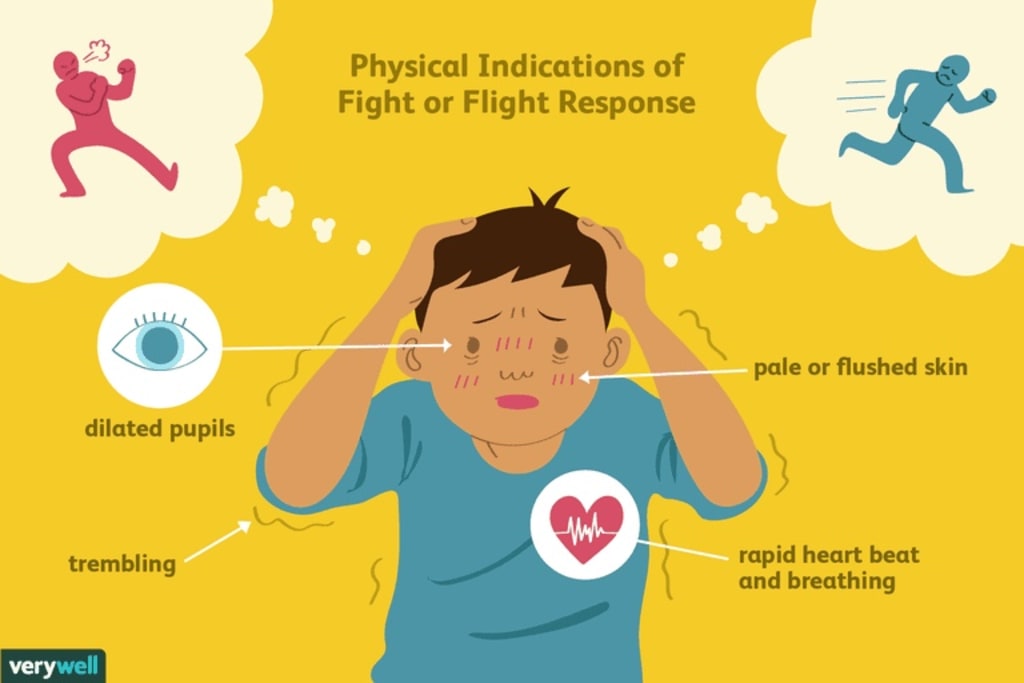What Exactly Is Trauma
How do we react to traumatic events

The effects of abuse and neglect: With the trauma-informed care movement, we have all heard that early childhood abuse and neglect impact brain development. Even exclusively psychological abuse has enduring negative effects on brain development. Physical, sexual, and psychological trauma in childhood may lead to psychiatric difficulties that show up in childhood, adolescence, or adulthood. The victim’s anger, shame, and despair can be directed inward to spawn symptoms such as depression, anxiety, suicidal ideation, and post-traumatic stress, or directed outward as aggression, impulsiveness, delinquency, hyperactivity, and substance abuse.
Research delineates a multitude of brain abnormalities associated with childhood abuse. There are four major components:
- Limbic irritability, manifested by markedly increased prevalence of symptoms suggestive of temporal lobe epilepsy (TLE) and by an increased incidence of clinically significant EEG (brain wave) abnormalities.
- Deficient development and differentiation of the left hemisphere, manifested throughout the cerebral cortex and the hippocampus, which is involved in memory retrieval.
- Deficient left-right hemisphere integration, indicated by marked shifts in hemispheric activity during memory recall and by underdevelopment of the middle portions of the corpus callosum, the primary pathway connecting the two hemispheres.
- Abnormal activity in the cerebellar vermis (the middle strip between the two hemispheres of the brain), which appears to play an important role in emotional and attentional balance, and regulates electrical activity within the limbic system.
Childhood trauma such as abuse and neglect can cause physical scarring to the brain, and increases the risk of severe depression, as well as other mental health and behavioral issues. One study found a significant link between adults who had experienced maltreatment as children with a smaller insular cortex, part of the brain believed to help regulate emotion. It focused particularly on a phenomenon known as “limbic scarring,” which previous research has linked to stress. The researcher, Dr. Nils Opel “Given the impact of the insular cortex on brain functions such as emotional awareness, it’s possible that the changes we saw make patients less responsive to conventional treatments.”
Cranial Nerve #7:
The Facial Nerve. When a child experiences trauma, abuse, or neglect it can affect the Facial Nerve. The Facial Nerve feeds the middle ear muscles. The impact of abuse or neglect can result in the middle ear muscles functioning improperly. This further results in background noises interfering with the child's ability to distinguish words and sounds of the human voice. A child experiencing this kind of difficulty will look directly at you, but not seem to be listening. That's because they are trying to figure out what you're saying, and what it all means in terms of what is being expected of them. This child may have speech problems. They may not form words correctly, because they have difficulty differentiating words from the background noises such as air conditioners, heaters, or refrigerators.
Cranial Nerve #10:
The Vagus Nerve. These are actually a pair of nerves that control the heart, the lungs, and the digestive system as part of the parasympathetic nervous system. When impacted, kids may have digestive issues as well as bedwetting and elimination issues. The Vagus Nerve serves the stress response. When impacted, there is disregulation of the autonomic state, the expression of emotions, and social behaviors. Children with Vagus Nerve issues will have extreme emotional outbursts, core meltdowns, and violent reactions to seemingly minor things. You've seen it, haven't you?
What Does Trauma Look Like?
Adults—anger issues, anxiety, depression, difficulty with developmental expectations, inconsistent employment, unstable relationships, distrust of others, poor boundaries, difficulty parenting, substance abuse, disengagement, controlling behaviors
Adolescents—anger, significant behavior and mood changes, distrust of others, promiscuity, school behavior and performance issues, truancy, court involvement, substance abuse, defiance, running away, high risk behaviors, depression, self-injury, suicidal and/or homicidal ideation, isolating behaviors, extreme compliance, zoning out, bullying
Younger children—rages, extreme friendliness (no “stranger danger”), tearfulness, thumb-sucking, whining, separation anxiety, defiance, regressive behaviors (bedwetting after being dry), sexualized behaviors, depression, school behavioral problems, detachment, zoning out, need for increased structure, poor affect regulation
So what do you do about it? My agency utilizes only research & evidence-based treatment interventions designed specifically for settling the nervous system. Attempting treatment with an unsettled nervous system will result in ineffectiveness and little to no results.
Deborah Parker, PhD CCTP (Certified Clinical Trauma Professional)






Comments
There are no comments for this story
Be the first to respond and start the conversation.